Listen Now
About the Episode
Key Topics
- Understanding the challenges of managing climate risk and adaptation in New Zealand
- Lara's squiggly career and personal growth through exploring different opportunities within the planning profession
- How being a grokkist helps Lara break down the barriers between different planning agencies and institutions
- The importance of communication, empathy and public engagement in planning
Recorded 13 January 2023
Episode Digest
Lara's squiggly career
- Planning was not Lara's Plan A. "I don't think I ever really had a Plan A or a Plan B or a Plan C for that matter. Very early on I wanted to be a marine biologist, and I always enjoyed science and I always enjoyed interacting with people. But other than that, I don't think I'd really thought about crafting a career."
- Lara pursued a health science degree with the intention of becoming a physiotherapist, but switched to planning after realising "my love of science didn't necessarily equal expertise in science". She found the planning degree itself really interesting and diverse, with opportunities for policy, planning, and urban design.
- She started her career as an architect's assistant. "That was really interesting grounding in the reality of how architects and the building industry perceives and interfaces with planning. That really helped me to understand the barriers and the perceptions around planning."
- From there, Lara went to Auckland Council and started out on the planning help desk, talking to the general public. "I don't always like to follow the common path, and there's a lot of expectation around what you do in serving your time and just doing things which are process based. So an opportunity came up in the monitoring and compliance team, which is quite a different part of the policy sphere, and I was really interested to explore that and come back to why we do things."
- Lara worked for Auckland Council's monitoring and compliance team before taking a more traditional path as a planner at a private consultancy where she gained an understanding of the financial realities and motivators in the private sector.
- Later, she moved to policy planning and had an amazing opportunity to be involved in the development of the Auckland Unitary Plan, where she witnessed one of the largest amalgamations of district and regional councils into a unitary authority. She worked on bringing together multiple planning documents from different sets of rules to create a regional set of rules for managing resources, including land, air, and water.
- Policy planning is where Lara first came across natural hazards and climate change in depth. She joined the natural environment team and worked on the portfolio of natural hazard, supporting region-wide policy direction and studying climate change. She picked up a lot of technical areas, including coastal inundation models, climate change, sea level rise, land stability, maunga, volcanoes, wildfire, catchment flooding, and coastal erosion. Lara learned how to perceive and communicate risks, and what's fair in an intergenerational sense. She noted that climate change was starting to grow rapidly as a hot topic during that time.
- On the difference between Planner as a job title vs an identity: "You actually can call yourself a planner once you've done that regulatory planning. But when I looked back, I was a planner at the end of my degree." University provided the academic framework, concepts, and history of planning as a profession, but did not necessarily prepare graduates for the daily tasks of being a planner. "Depending on what your role is in planning over your career, you may never know, may never necessarily appreciate the academic foundation and some of the conceptual thinking that you develop there. But because I've had such a diversity of roles and one of those being back in academia as well, and now really do appreciate that understanding of planning as a process, as a profession, as an approach to how we manage urban development and urban form and placemaking."
- Lara's interest in research was piqued during the unitary plan process.
"We were in such a tight regulatory timeframe, it was like, wow gosh it would be so great if there was some research out there that addressed this question or helped to support what seems to be quite a logical assumption. What's wrong with the research sector that that's so difficult for us to actually access their research?" - Having realised that she wanted to explore the research side of planning, Lara applied for a role at GNS Science (a Crown Research Institute). She was initially unsuccessful due to her lack of research background. However, several years later, she was offered a position and she couldn't resist the opportunity to pursue this area of interest.
- Working in the research sector was "a big learning curve ... the whole science system is so complex and the methods and the approaches and the egos, the constructs, it's an incredibly political and difficult world to navigate." Despite these challenges, Lara was determined to make a positive impact on the science and planning research community in New Zealand. She "went off on a bit of a tangential journey to becoming a team leader and to wanting to understand research funding and getting involved in trying to build more links to stakeholders and making sure research was actually useful."
- From GNS Science, Lara ended up speaking with some former colleagues at Auckland Council and understood that they were needing a new project leader for a series of adaptation plans which were being developed for shoreline adaptation in the Auckland region. She saw a good opportunity to bring research and practice streams together because "practices are just starting and academia has been looking at these issues for a number of years, but not really had much of a chance to try and implement them." For Lara, this was also "the perfect opportunity to learn by doing."
- Recently, Lara had the opportunity to teach undergraduate planning students at the University of Auckland, which she found enjoyable and challenging. She appreciated the opportunity to be asked difficult questions and having to think on her feet. She also shared her surprise at how well the students responded to looking at wicked problems and urban planning and how their ideas and reflections were just as good, if not better than a lot of practicing professionals in the field.
- Lara is an advocate for Planning Aid, which can help people engage with planning processes and advocate for public participation in planning. She emphasises the importance of making policies accessible to people and ensuring that they are written in a way that can be easily understood.
The Red Thread
- Lara believes that planning and placemaking are about how people live, their aspirations, how people aspire to live in the place they live in, and how future generations might experience the world. "It really is around people and how we interact with our world."
- In New Zealand, there is a lot of natural hazard risk, such as earthquakes and volcanoes, due to its location along tectonic plates. Lara emphasises the need to understand hazards and communicate them effectively to people, taking into account their values and risk tolerance: "different communities have different tolerances...what is it that we value and what do we have to lose?"
- It is important to Lara to framing change in a positive way and recognise people's values to encourage positive outcomes, especially when it comes to challenging conversations about climate change adaptation. "There's lots of different tools that we can use in the policy toolbox to force people and to use scientific metrics around how risky something is and why they can't be there and what the consequences are. But if we want to positive process that's repeatable, we have to really recognise the values and encourage people to see change in a positive thing.
- "I have never left a job because I didn't enjoy it. In fact, I've found leaving some of my more recent roles incredibly difficult because I have been enjoying what I've done so much. But I think I'm always interested in what are the things that stop this working? How do we do a deep dive into this part of the process to figure out what works well and what doesn't? I've tended to follow those opportunities and challenges as they've organically presented themselves to me. It's usually been something I've been interested in and then opportunities have arisen, which has resulted in me moving between roles and moving between jobs. It's maybe as much a curiosity about a technical area or a subject matter as it is about the process, and understanding what could we do better?"
- From all her diverse experience, Lara locates the major barriers to doing better in the need for political bravery and leadership, and the importance of having the right evidence to support the right choices.
Lara's thoughts on being a grokkist
- "It's really lovely to engage with the concept of a grokkist and feel that there's other people out there that think in a slightly abstract and different way. And it's really encouraging to look at all the positive applications, rather than just thinking that you are a tangential thinker who's a bit of a nuisance."
- "Because we work within a regulatory setting where you're trying to get results for clients within a certain timeframe, people become quite happy with the box and happy with the process, and if people start raising questions or matters, which could conceivably be within the realms of something that people should be considering, but they don't normally think about those things, it makes people quite uncomfortable."
- "I think it can appear to people as short attention span or changing your mind and your focus. But in fact, I wouldn't be where I am today without every part of what I've built. It's like opening doors. You've got more doors open and more things that you know, and that informs the opinion that you give or the advice that you provide."
- On following her interests: "As soon as you find something new, you've left behind the stuff you are doing. You'll leave things unfinished because your focus shifts. That really resonated with me and in a work setting, it's something that I have to work hard to combat as well. It's that last push to get something finished that's often the hardest."
- On the need to chase the next opportunity: "I was really interested and happy doing what I was doing. I had a huge amount of diversity, fantastic colleagues and clients. But once that seed was planted, it was all over. I had to pursue that area of interest and I had to follow it through."
Reflections on practice
- On natural hazards and risk: "Natural hazards are events that occur in the natural world, such as floods, storms, or winds, that can be hazardous or harmful to something people care about. Risk is probably one of the most difficult terms to explain," and it is "about how often something might happen or when it might happen. That's called likelihood." The other component to consider is consequences, which Lara described as "looking at whether it might happen, what happens when it does, and that gives us an overall equation of what the risks to us."
- On the decision of whether to build a house in a floodplain and the delicate balance between personal freedom, responsibility and the impact of individual decisions on the community and the environment: "If you want to do something and you are wanting to take a risk, there is a likelihood that it could happen and it's going to result in some form of effect on you. In some situations that's up to you and you decide that, and you are going to be the main person that has to deal with those consequences." However, if the decision affects other people or the environment, other stakeholders have a say in the matter. "When you are wanting to do something that might affect other people as well, or might affect the environment or might affect other things that people value, then other people start to have the ability to have a social bearing on whether you should do that or not." In some cases, building in a floodplain might be allowed if changes are made to the design to mitigate the potential risks. "If you wanted to build your house in a flood plain, you might be allowed to do that if you just change your design a little bit so that you are perhaps not going to end up with your house washing away or you might not need rescuing".
- Lara reflects on the complexities of planning in New Zealand, noting that the process is highly litigious and rooted in legislation. She highlights that this can sometimes result in a narrow view and a loss of the bigger picture context, despite having a very interesting legislative setting that is progressive in many ways. For example, the Resource Management Act is cutting edge in many ways, but can also be a blunt instrument, as evidenced by the removal of blanket protections for urban trees. "It really narrows our view. We lose some of the bigger picture context."
- Lara notes that intergenerational equity is something that is at the forefront of planners' minds, especially when working for local or central government. The Resource Management Act does refer to future generations, and Lara mentions a national coastal policy statement that talks about a timeframe of at least 100 years. However, she notes that it is much more difficult to think about future generations and future values when dealing with areas that are subject to culture and changing society. She mentions the newly coined term "decision making under uncertainty" as a frame for thinking about what future generations want, which is essentially about keeping options open and preserving as much as possible so that future generations have choice and aren't left with the mistakes of the past.
- On the challenges of adapting to climate change in areas that are low-lying and close to the coast, and how to balance the need for protection with preserving the sense of place and heritage of these areas: "Our approach towards adaptation in these areas might be more of what we call accommodation practices. How do we live with our increasing exposure to, or the impact from some of the hazards we are experiencing." It can be a complex process and policy frameworks are necessary to set the scope and boundary conditions within which decisions can be made.
- Lara notes that both the box (i.e. policy planning and legislative framing) and the processes within the box (i.e. the information used to make decisions) are equally important. "If the box doesn't enable good process, and if you can't look at the box and decide that you've got a good outcome and what's in the box looks good, then you need to change the size of the box or the shape of the box."
- On the importance of monitoring and evaluation in the planning policy development sphere: "That's where you need good research. That's where you need that feedback loop so that you can look in the box and say, does this look good? What are the criteria by which I assess whether this looks good and if it doesn't look good, how do I change it? What are the inputs? What are the outputs? What are those boundary conditions?"
- On the need for greater understanding and education around the risks and hazards associated with climate change: "There are so many issues that everyone has to contend with it an everyday basis. Climate change, thought it's a real buzzword now, might just be one of many things. perhaps quite a long way down the list for a lot of people on an everyday basis."
- On community and community engagement: "Decision making doesn't always have to be a negative. It can be a positive and we are not perhaps very good at a proactive approach to managing risk." Lara describes how she recently saw a presentation at the New Zealand Coastal Conference that had an impact on her. The presenter told a story about climate change that conveyed an awful lot of information, and Lara realised that it is important to think more about how to share information, rather than just what information to share. "It's important to communicate effectively with the people that we are ultimately trying to plan for ... culture eats policy for breakfast." She emphasises the importance of providing clear and accessible information to people, without presenting it in a high-pressure or negative setting.
- Lara discusses her interest in co-design and the importance of understanding stakeholders' perspectives and pain points when approaching a project. She notes that traditional western policy constructs tend to focus on what the government wants rather than considering the needs and desires of stakeholders. She also expresses concern about representative decision making and who bears the brunt of the effects of climate change and environmental change. However, Lara remains hopeful that if decisions are made transparently and stakeholders are well-informed, we can make the best choices possible for the future.
- When asked what life-changing learning experience she would gift to someone, Lara suggests the opportunity to truly walk a mile in someone else's shoes and gain an understanding of their challenges, barriers, and issues. She believes that this kind of experience would be eye-opening and help people better understand other worldviews.
Stuff We Mentioned
Books
- Democracy and Expertise: Reorienting Policy Enquiry by Frank Fischer
- Beyond Sticky Notes: Doing Co-Design For Real by Kelly Ann McKercher
Documents
Organisations
Terms
Audio Highlights
Episode appetiser - What is planning all about? (56s)
0:00
/0:56
Lara explains natural hazard risk to a 10 year-old. (59s)
0:00
/0:59
Who decides if I can build my house on a floodplain? (58s)
0:00
/0:58
How Lara follows her curiosity and seeks new opportunites and challenges. (59s)
0:00
/0:59
How Lara brings together the various strands of her knowledge and experience. (55s)
0:00
/0:55
About Lara Clarke
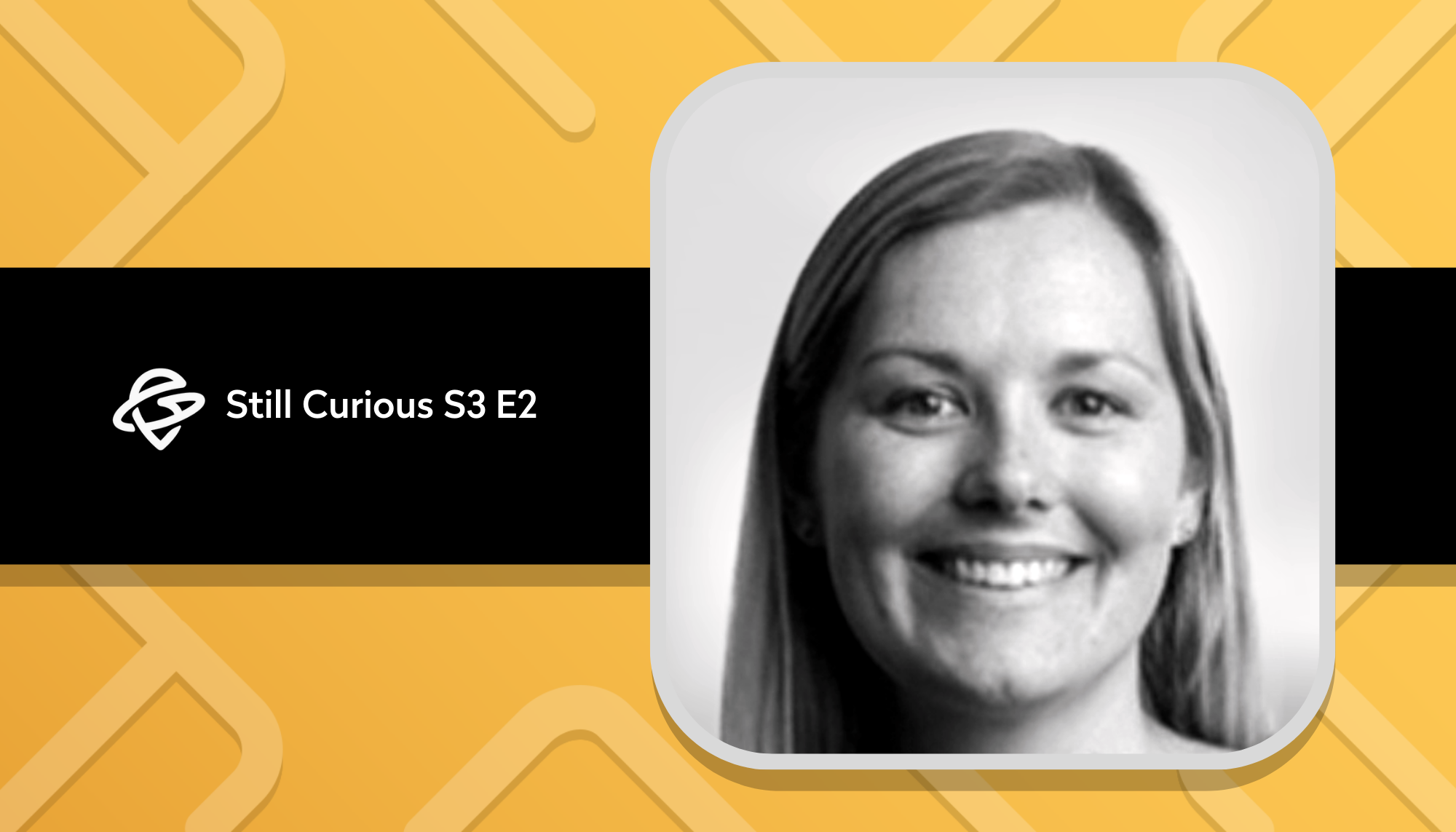
Lara Clarke is a New Zealand-based planner with over 10 years of experience in the field, working across the public and private sectors at the intersection of policy, science, and community engagement.Having attempted a science degree (i wanted to be an equine physio) I ended up studying planning at university, a degree I hadn't heard of until I applied to the course. From there I embarked on a career which i have 100% enjoyed and followed numerous opportunities to work in many aspects of the planning profession including research and academia.I continually look for a new challenge and to expand my thinking and apply all I have learnt to each new step I take. I find linking things, people and kaupapa are hugely rewarding and stimulating process and my constant desire for change and new things is endured by my partner and two wonderful (and at times challenging) children.

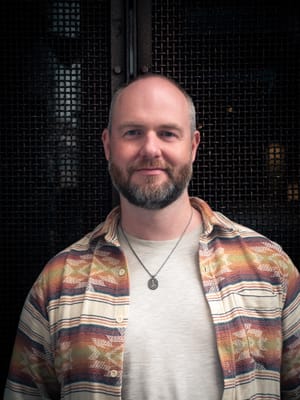
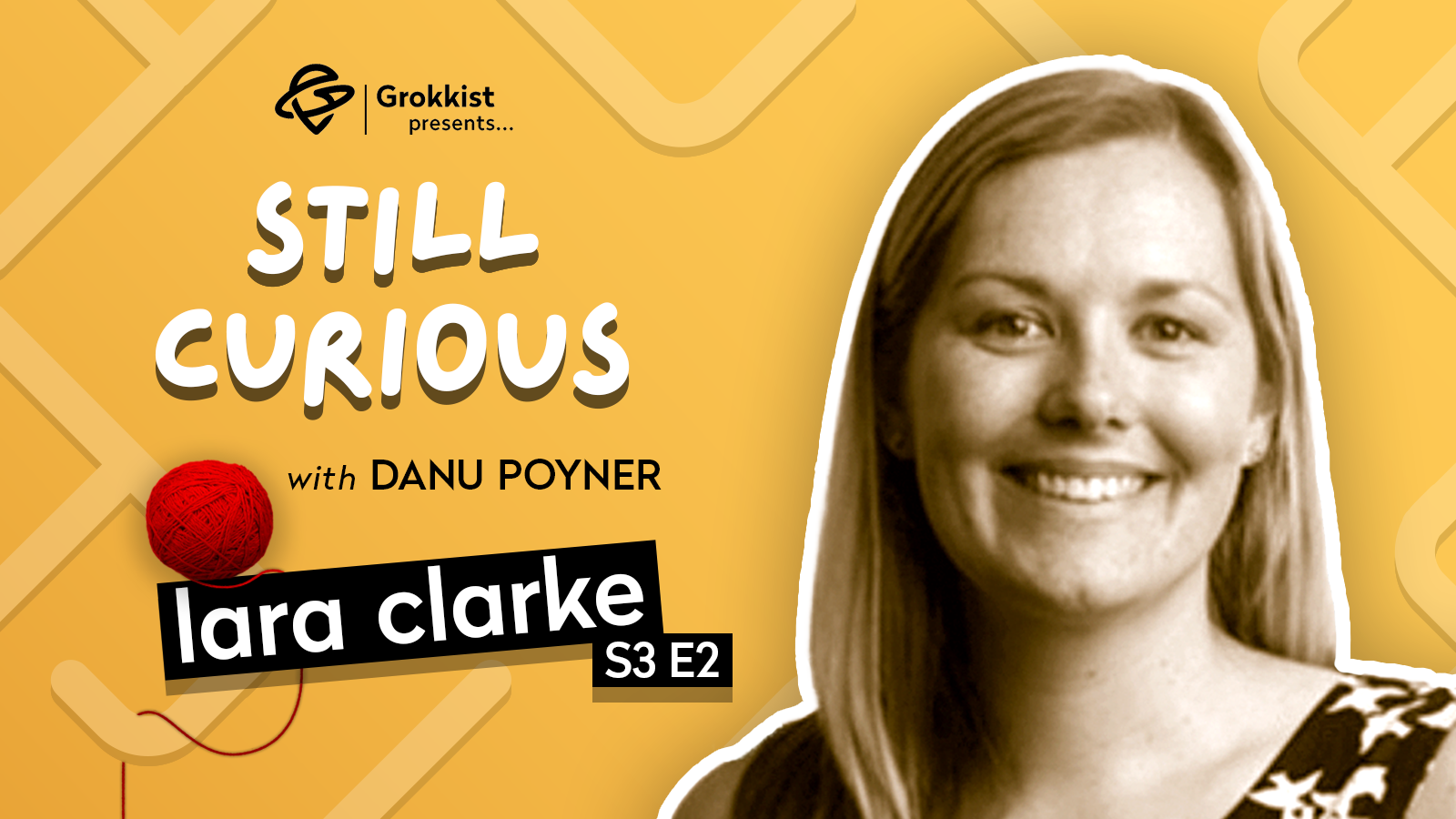



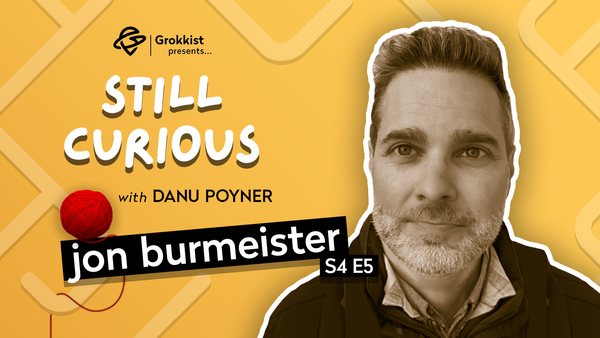
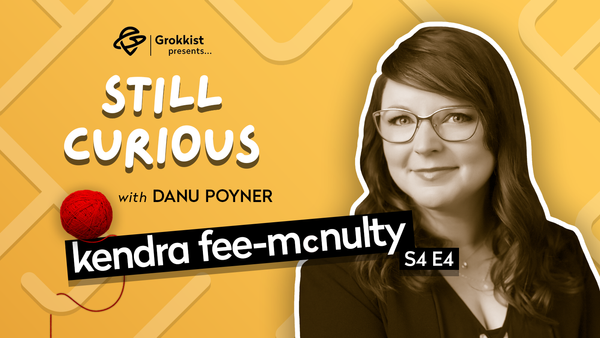
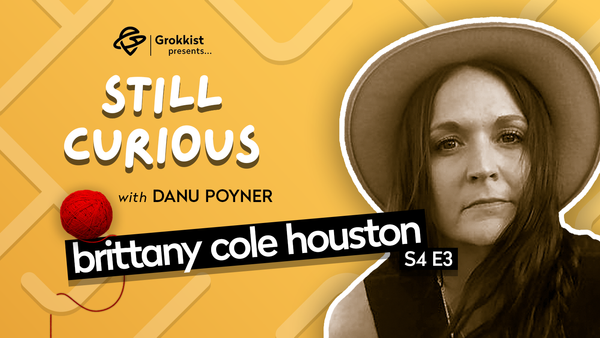

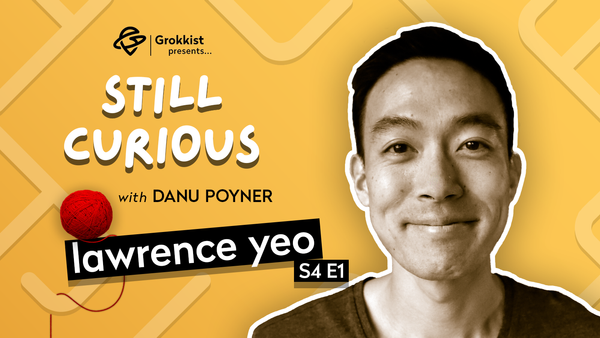
Member discussion